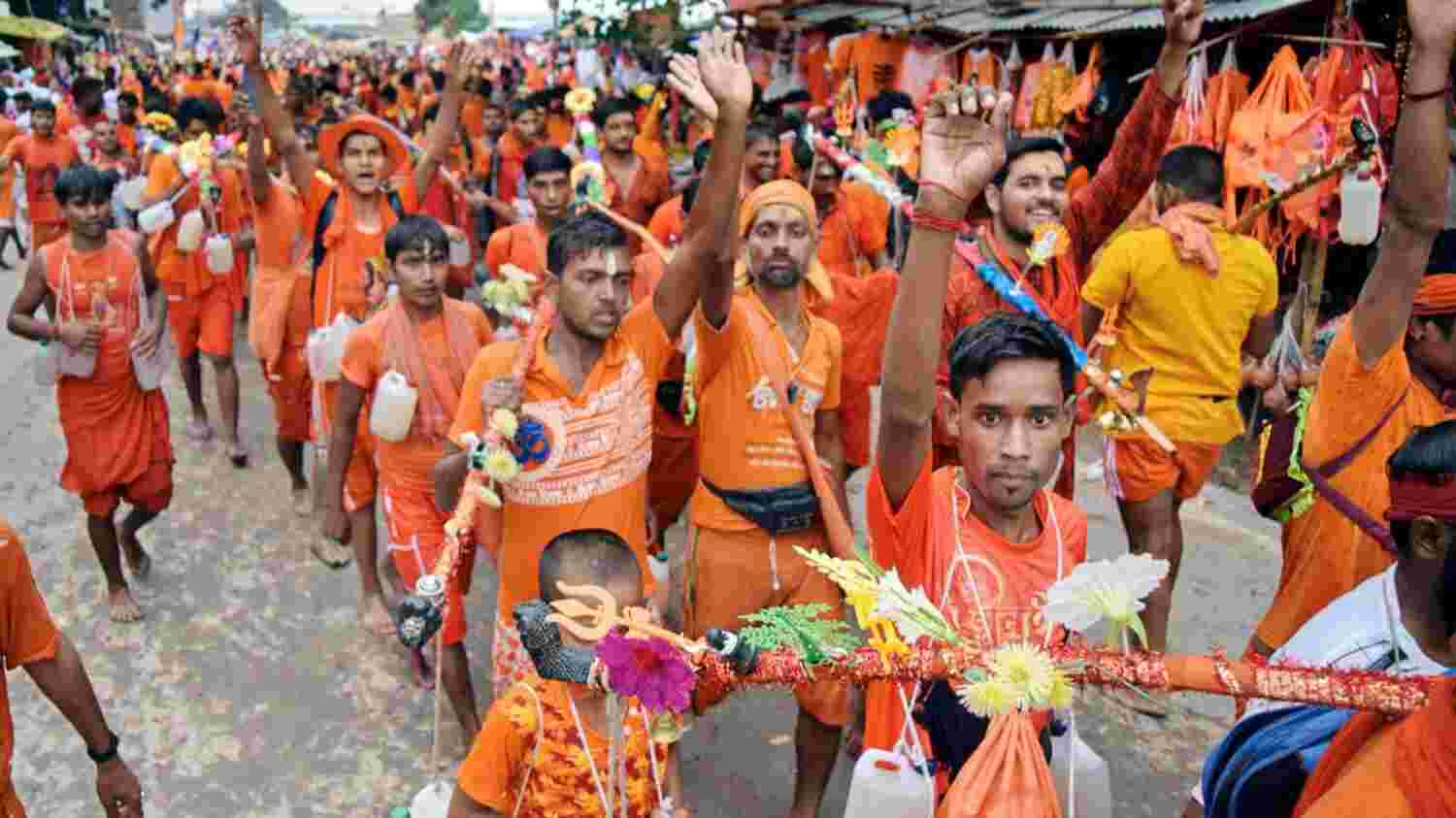Being watchful

On Saturday, the UP government finally announced that the cancellation of the Kanwar Yatra for this year. The announcement followed a day after the Supreme Court asked the Uttar Pradesh government to reconsider its stance of allowing a 'symbolic' Kanwar Yatra. The UP government had initially decided to go ahead with the Yatra with strict curbs in place, even though Uttrakhand chose to cancel the annual Yatra for the second time in a row. The Yatra was set to begin on July 25. On Friday, the Supreme Court asked the UP government to reconsider its decision, saying "The health of citizenry of India and right to life is paramount, all other sentiments whether be religious is subservient to this basic fundamental right." The Court referred to statements made by PM Modi that it was the responsibility of every Indian to prevent a third wave and that there could be no compromise in this regard. Concerns over an impending third wave are widespread in the medical community. The ICMR recently warned the Central and state governments that the third wave of COVID is 'inevitable and imminent'. It urged that tourism, pilgrimage travel and religious fervour can wait for at least three more months as the population follows COVID protocols. The statement read "Opening up these rituals and enabling people without vaccination to go scot-free in these mass gatherings are potential super spreaders for the Covid third wave." The association expressed its concern over the general laxity amongst the Indian public in regards to COVID safety following the devastating second wave and that warning of a third wave is being ignored. Samiran Panda, a senior ICMR scientist said on Friday that the third wave will likely hit India in August and the country will likely see nearly one lakh new COVID cases a day during this wave. Beyond precautions, the battle is now between vaccines and variants. The infectious Delta variant that contributed in large part to India's devastating second wave is still spreading. Newer variants are emerging as well with the WHO recently acknowledging that there is a 'strong likelihood' of more infectious and more dangerous variants evolving in the coming days. At the same time, vaccinations in India overall remain low. As of July 16, only 23.3 per cent of the population had received at least one shot. That is nowhere near the required levels for vaccines to start having a significant overall effect on hospitalisations and daily case counts. But even if vaccinations pick up, the reality of living with COVID is still a great unknown for the world as a whole. A case in point is the UK and its planned reopening on July 19, the so-called 'freedom day' on which almost every COVID restriction for the country will be lifted after over a year of restrictions. The UK has a high vaccination rate with 69.3 per cent of its population having received at least one dose of a vaccine by July 15. Over 53 per cent of its population is fully inoculated. Still, the UK is in the midst of an intensifying third wave that continues escalating as the country approaches July 19. On June 17, the country had 10,809 new cases with a weekly average of 8,234. One month later on July 17, the country had 53,969 new daily cases with a weekly average of 42,350. Housing, Communities and Local Government Secretary Robert Jenrick told Sky News on the weekend that government projections show that the current wave won't peak until late August or early September. The only saving grace at this point is that hospitalisations and deaths remain low but it is unknown how long this state of affairs will last if the country relaxes most COVID restrictions. Estimates for hospitalisations by August range from 900 to well over 5,000 a day. Many scientists worldwide have referred to the UK's COVID restrictions relaxation plan as an 'experiment' which can have a very heavy cost. The general opinion in the UK is that the Boris Johnson government doesn't have the political capital to pull off another extension of COVID restrictions even given all the warnings from the medical community. To make things worse, his health minister, Sajid Javid only recently tested positive for COVID-19 and Johnson is now isolating after having been in contact. The point here is that despite all the advances that have been made, COVID-19 remains an unpredictable opponent that has not been laid to rest. While learning to exist with the virus will likely be important as most experts believe COVID-19 will become endemic at some point, it is too early for relaxations. There is still too little known about how effective vaccines actually are in suppressing the virus and its growing number of 'fitter' variants that are driving new waves worldwide. In such a situation, taking every precaution necessary, even after getting the vaccine, is not only advisable but absolutely necessary to prevent COVID disaster, whether it be in India or elsewhere.



